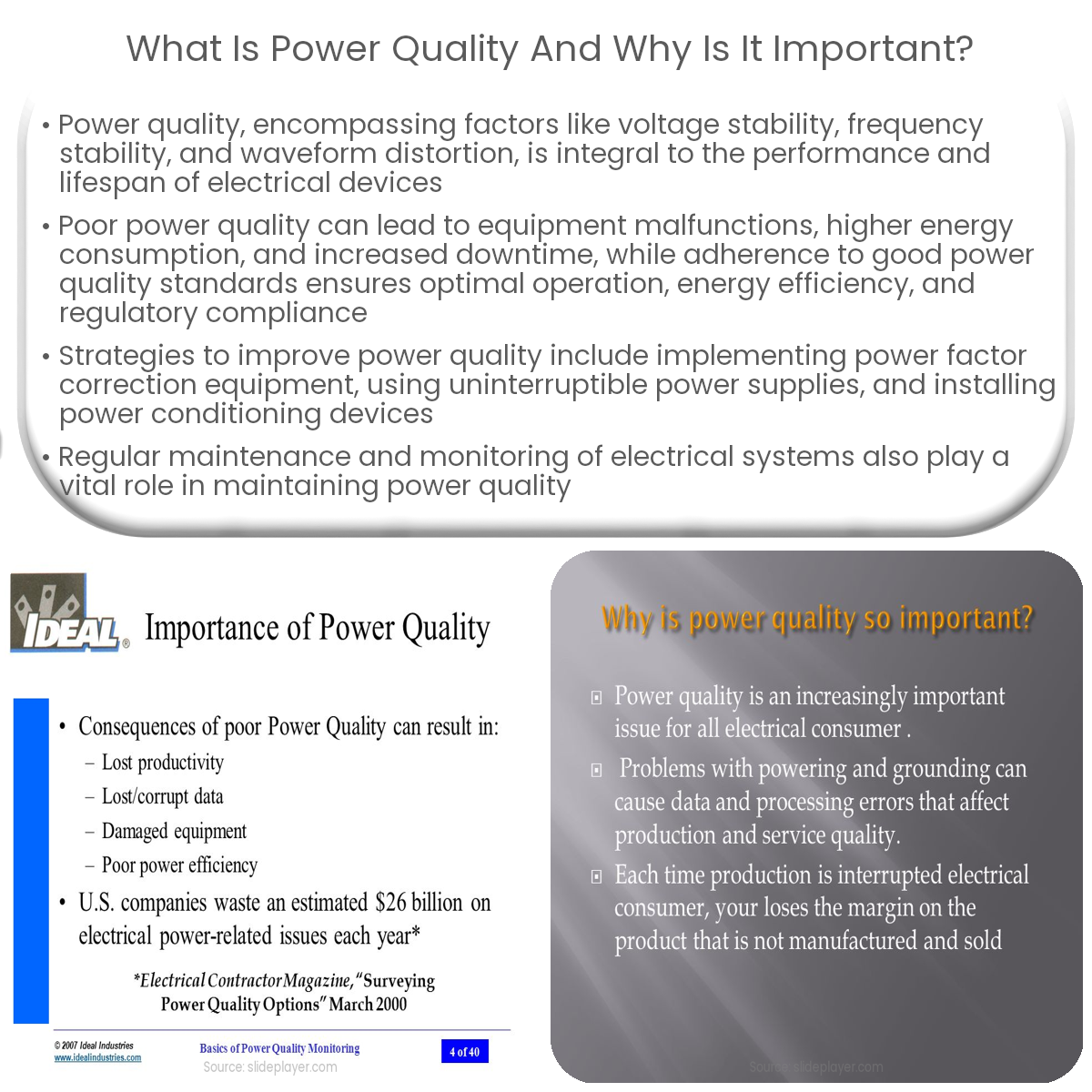Power quality refers to the consistency and reliability of electrical power, affecting equipment performance, lifespan, energy efficiency, and compliance with standards.
Introduction
Power quality refers to the consistency and reliability of the electrical power supplied to a system or device. It is a critical aspect of modern electrical systems, as it directly impacts the performance and longevity of equipment. This article discusses the importance of power quality and its significance in electrical systems.
Defining Power Quality
Power quality encompasses various factors, including voltage stability, frequency stability, and waveform distortion. Good power quality ensures that electrical devices receive a steady supply of voltage and frequency within specified limits and with minimal distortion. Conversely, poor power quality can result in fluctuations or disturbances in the supplied power.
Importance of Power Quality
Power quality is essential for several reasons, some of which are outlined below:
- Equipment Performance: Poor power quality can negatively impact the performance of electrical devices, causing malfunctions, reduced efficiency, or even damage. Good power quality ensures that equipment operates optimally and reliably.
- Equipment Lifespan: Devices subjected to poor power quality may experience increased wear and tear, leading to shorter lifespans. Maintaining good power quality can help extend the life of electrical equipment and reduce replacement costs.
- Energy Efficiency: Poor power quality can result in higher energy consumption, as devices may require more power to compensate for voltage or frequency fluctuations. Improving power quality can contribute to greater energy efficiency and reduced energy costs.
- Reduced Downtime: Power quality disturbances can cause equipment failures, leading to unplanned downtime and loss of productivity. Ensuring good power quality can help minimize downtime and maintain business continuity.
- Compliance: In many regions, utility companies and regulatory authorities set standards for power quality. Maintaining good power quality helps businesses stay compliant with these standards and avoid potential penalties.
Improving Power Quality
There are several ways to improve power quality in an electrical system, including:
- Implementing power factor correction equipment
- Using uninterruptible power supplies (UPS) to maintain voltage stability
- Installing power conditioning devices to reduce waveform distortion
- Performing regular maintenance and monitoring of electrical systems
Conclusion
Power quality is a crucial aspect of electrical systems, directly affecting equipment performance, lifespan, energy efficiency, and compliance with regulatory standards. By understanding the importance of power quality and taking steps to improve it, businesses can optimize their electrical systems and ensure reliable operation.


